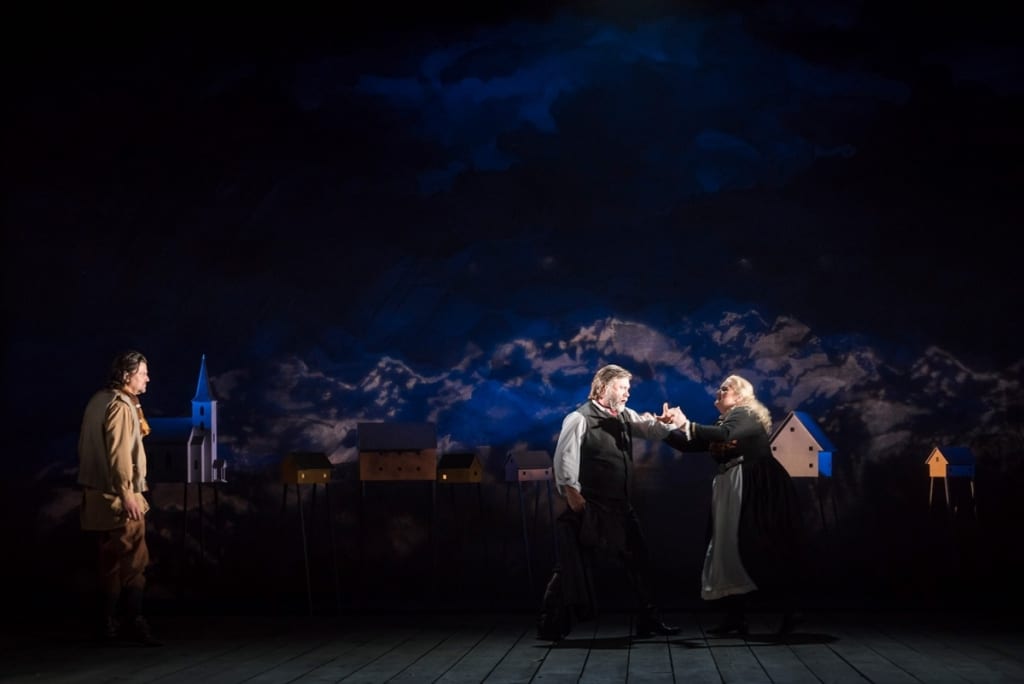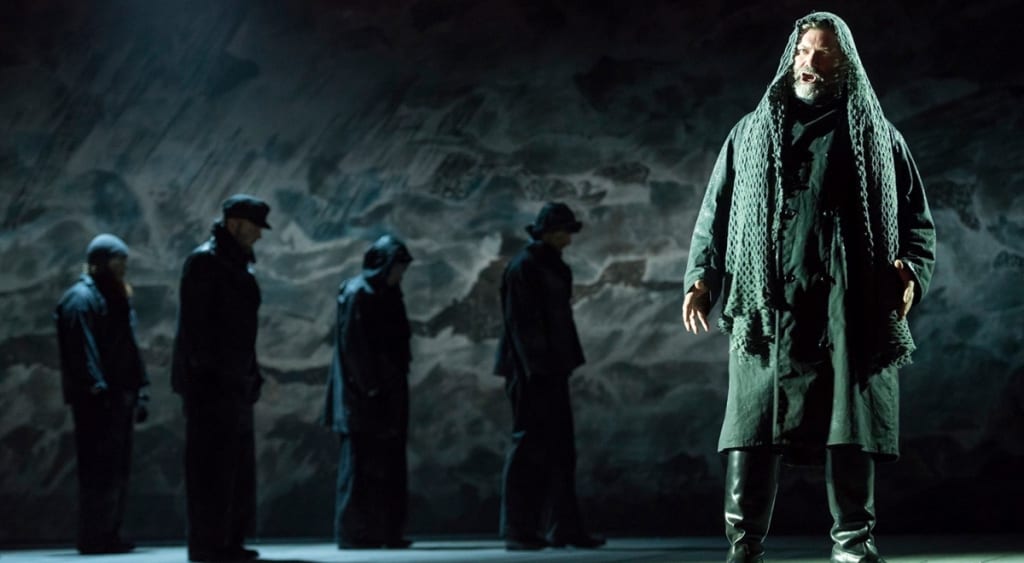The team at the Longborough Festival have managed to produce a Flying Dutchman that will itself live in legend, I believe. It is a superb production, all the better for its simplicity and clarity. There was no sense of a response to limited means; rather it came across as a deeply intelligent telling of the story. Thomas Guthrie, as before with his Marriage of Figaro and Magic Flute at Longborough, has engaged directly with the tale and its mythos and elicited from his cast dramatic cogency that is rare. His approach is somewhat reminiscent of the simple productions at Bayreuth in the late 1940s and early 1950s when everything seemed to be done with a few drapes, nice costumes and lighting and the result was cutting through to the quick and the sense of wonder in the works. The approach is somewhat Brechtian, with zombie-like sailors on the magic ship with red sails, the simplest staging means to suggest a boat slipping past its home port in a fjord, and some finely thought-through shifts such as having the Dutchman’s picture ripped out of a book of mythic tales. I especially liked the way the fishing nets descended from the ceiling; and the suggestion of the town as a scene from the quay in the last scene.
Director Thomas Guthrie has, once again, not imposed a vision on the work but responded to it with a profoundly insightful and thought-provoking interpretation that is conveyed without exception by his cast. The updating to a time when the ghosts could sing through a Bush radio worked just fine and his slight tampering with the ending in the way Senta actually kills herself to prove her loyalty is completely sensible, stage-worthy and moving, with a superbly sound final moment of the redemption the story requires.
Anthony Negus is my hero for leading, yet again, one of the finest Wagner performances of our times. He is just as praiseworthy for his musical approach as ever, with some apt yet surprising moments of dynamic control, rhythmic response and sonorous beauty. He knows just when to slow the playing of the score that little bit more than is usual so that you can enjoy the detail; when to speed it up and dramatise; and his sense of the dynamics of the music is exceptionally secure. This is the highest-level Wagner playing. He has selected to do the revised three-act version of the opera on this occasion and writes a good introduction in the programme to the musical development of the work that is very worth reading. The orchestra and chorus respond to him with great confidence and, I think, a real pleasure.
Simon Thorpe is a gruff, troubled and memorable Dutchman who rises to the emotional heights in his duet with Senta and again in the final scene. I liked his voice and his acting. For me, the ultimate star of the evening was Kirstin Sharpin, who was simply astounding as Senta, conveying with her acting and her singing the strength and feistiness of the character, the attraction of the mystical and the mythical for her, as well as Senta’s allure and beauty. Her voice is stunning, with a clean and laser-like cutting edge allied to the warmth of sound. She is utterly secure musically and a fine actress as well. She has total control of all her vocal and dramatic means, and some of her high-note pianissimi were breathtaking. Hers was a performance of beauty in every aspect. This is going to be a career to watch.

The fine acoustic of the theatre at Longborough was good to all the music and musicians. Carolyn Dobbin has a warm, stunning sound too; and like Sharpin, her acting was completely convincing at every moment. I just wish she had had more to do, though I am grateful to Thomas Guthrie that he found ways to give her more stage time than is usual. The young Steersman, William Wallace, is another singer to watch out for. The night I attended the important role of Erik was sung by the understudy, Florian Thomas, another fine singer who was extremely moving in the sense of betrayal and pain that he conveyed. Richad Wiegold’s Daland did put me in mind of Rocco in Fidelio. The chorus sounded wonderful throughout; their movement was engaging, with excellent ideas for the staging, in particular, of the Spinning Chorus in Act Two and also the clog dance in Act Three.
Frankly, there was nothing about this production, its cast, its ideas or the musical performance that I did not like enormously. The audience clearly agreed with me, giving the singers, conductor and orchestra several minutes of ovations. Like the Tristan und Isolde, I hope that Longborough will consider reviving this production and giving it more performances. It is that good.

